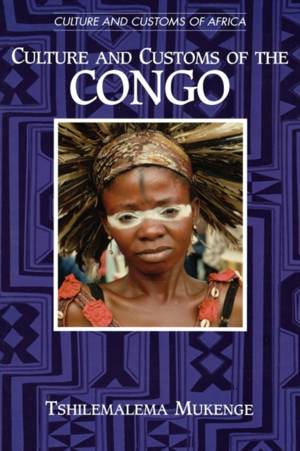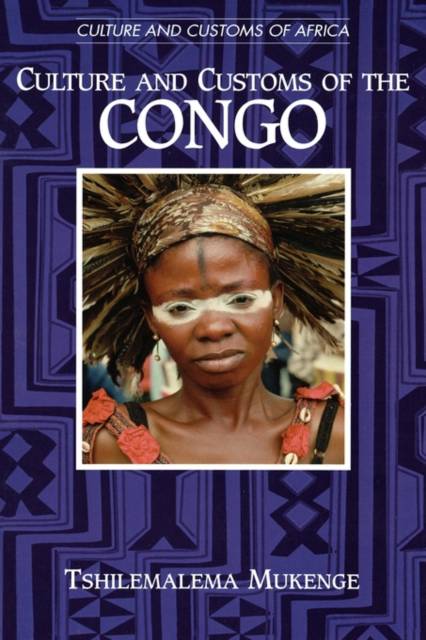
- Afhalen na 1 uur in een winkel met voorraad
- Gratis thuislevering in België vanaf € 30
- Ruim aanbod met 7 miljoen producten
- Afhalen na 1 uur in een winkel met voorraad
- Gratis thuislevering in België vanaf € 30
- Ruim aanbod met 7 miljoen producten
Omschrijving
The Democratic Republic of Congo, formerly Zaire, continues to struggle with socioeconomic and political development. Culture and Customs of the Congo provides the full context of traditional culture and modern practices against a backdrop of a turbulent history. The volume opens up a land and peoples little known in the United States. Written expressly to meet the needs of students and the general audience, the work will inform about the geography, economy, political history, and history from the slave trade to dictatorship; ancestral religions and inroads of western faiths; ancestral literary heritage and communication; art, architecture, and housing; diet and dress; marriage, family, and women; lifestyles and life events, and traditional and modern music and dance.
Congolese society comprises hundreds of ethnic groups, such as the Luba, the Kongo, and the Kuba. The countryside is largely based on the hunting and gathering, herding, and farming lifestyles. The city is marked by lifestyles reflecting the prevalence of small business activities and increasing cultural sycretism of customs from different parts of the Congo and Western imports. Mukenge's narrative gives the diverse perspectives of their cultures with their fascinating juxtapositions to our familiar western ways. Examples of this are found in the Religion and Worldview chapter, which discusses ancestral religions, the spirits of the land, and supernatural power practitioners. The Literature chapter covers verbal competition and game songs. Congolese cuisine is based on starches such as the cassava root, the corn, and the plantain; green vegetables, insects, fish and, to a lesser extent, meat. Other chapters cover topics from the distinct Congolese dress and symbolic adornments, all-important family lines, to ceremonial music and dance. A chronology and glossary are added value.Specificaties
Betrokkenen
- Auteur(s):
- Uitgeverij:
Inhoud
- Aantal bladzijden:
- 232
- Taal:
- Engels
- Reeks:
Eigenschappen
- Productcode (EAN):
- 9780313314858
- Verschijningsdatum:
- 30/11/2001
- Uitvoering:
- Hardcover
- Formaat:
- Genaaid
- Afmetingen:
- 163 mm x 239 mm
- Gewicht:
- 530 g

Alleen bij Standaard Boekhandel
Beoordelingen
We publiceren alleen reviews die voldoen aan de voorwaarden voor reviews. Bekijk onze voorwaarden voor reviews.











